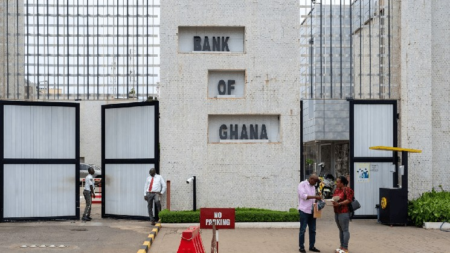- Ten countries, including China, Russia, and Iraq, have imposed strict cryptocurrency restrictions or outright bans, citing financial stability, fraud prevention, and economic control concerns.
- Despite harsh crackdowns, underground crypto trading remains widespread, with nations like China ranking high in global adoption while enforcing strict regulations.
Regulatory crackdowns on cryptocurrency continue to gain momentum as ten countries impose strict restrictions or outright bans on digital assets. Nations such as China, Russia, and Iraq cite concerns over financial stability, fraud prevention, and economic control as reasons behind their hard stance on crypto transactions.
A report by CEOWORLD magazine highlights how governments worldwide are grappling with the challenges of decentralized currencies. While some nations are completely banning cryptocurrency, others are opting for stringent regulations. Despite these measures, underground trading and peer-to-peer transactions remain rampant, making enforcement a persistent challenge.
China’s Persistent Crackdown and Underground Market
China has maintained a strict anti-crypto policy since 2017, initially banning cryptocurrency exchanges before extending restrictions to financial institutions and mining operations. By 2024, China ranked 20th on Chainalysis’ Global Crypto Adoption Index, showing that despite severe regulations, underground trading remains active.
Meanwhile, the Chinese government has shifted focus toward its central bank digital currency (CBDC), the digital yuan, which continues to expand through pilot programs. Authorities argue that state-controlled digital currency provides financial security while mitigating the risks associated with decentralized cryptocurrencies.
Iraq, another country reinforcing restrictions, imposed a cryptocurrency ban through its central bank in 2017. The government cited volatility, financial crimes, and consumer protection as primary reasons. In 2018, the Kurdistan Regional Government’s Supreme Fatwa Committee issued a ruling against OneCoin, further solidifying the nation’s skepticism toward digital assets.
Russia Opts for Regulation Instead of an All-Out Ban
In 2022, the Russian Central Bank proposed a complete ban on cryptocurrency transactions and mining. However, after extensive debate, the government chose to regulate rather than prohibit the industry outright. While cryptocurrency mining remains legal, the country has maintained restrictions on domestic payments using digital assets.
Similarly, Egypt has taken a highly restrictive stance on cryptocurrency without completely banning it. The Central Bank of Egypt continues to issue warnings against digital transactions, though some exchanges manage to operate within a complex legal framework. The debate over cryptocurrency also extends to religious interpretations, as some Islamic scholars classify it as haram due to its speculative nature.
In contrast, Afghanistan, under Taliban rule, has taken a far more aggressive approach. Authorities reinstated a cryptocurrency ban in 2022, citing financial instability and fraud concerns. Enforcement has been harsh, with multiple arrests and the shutdown of exchanges in the city of Herat.
Africa and South Asia Clamp Down on Crypto Trade
Several African and South Asian nations have also reinforced restrictions. Algeria maintains a complete ban on digital assets, citing economic stability risks. Despite this, informal crypto trading continues, highlighting the challenge of regulating decentralized financial activities.
Bangladesh has remained firm on its stance since banning cryptocurrency in 2017. Violations are met with fines and imprisonment, making the country one of the most rigid enforcers of anti-crypto policies. Nepal, another South Asian country, has adopted an even more aggressive approach, cracking down on traders and unauthorized exchanges to maintain financial stability.
In Morocco, authorities banned cryptocurrency transactions in 2017, yet the country remains one of Africa’s leading nations in peer-to-peer Bitcoin trading. A shift in policy may be on the horizon, as the central bank, Bank Al-Maghrib, has drafted legislation to regulate digital assets.
Bolivia’s Surprising Reversal in 2024
Unlike other nations tightening their grip on crypto, Bolivia took an unexpected turn. Since 2014, the country has enforced a strict ban on digital currencies due to concerns over monetary stability and financial crimes. However, in June 2024, Bolivian authorities reversed their stance, allowing regulated financial institutions to process cryptocurrency transactions through approved electronic channels.
This decision contrasts sharply with the growing list of nations imposing stricter regulations or outright bans. The move signals a potential shift in how some governments may approach cryptocurrency, opting for regulation instead of prohibition.
Read the full article here









